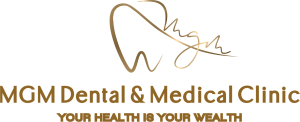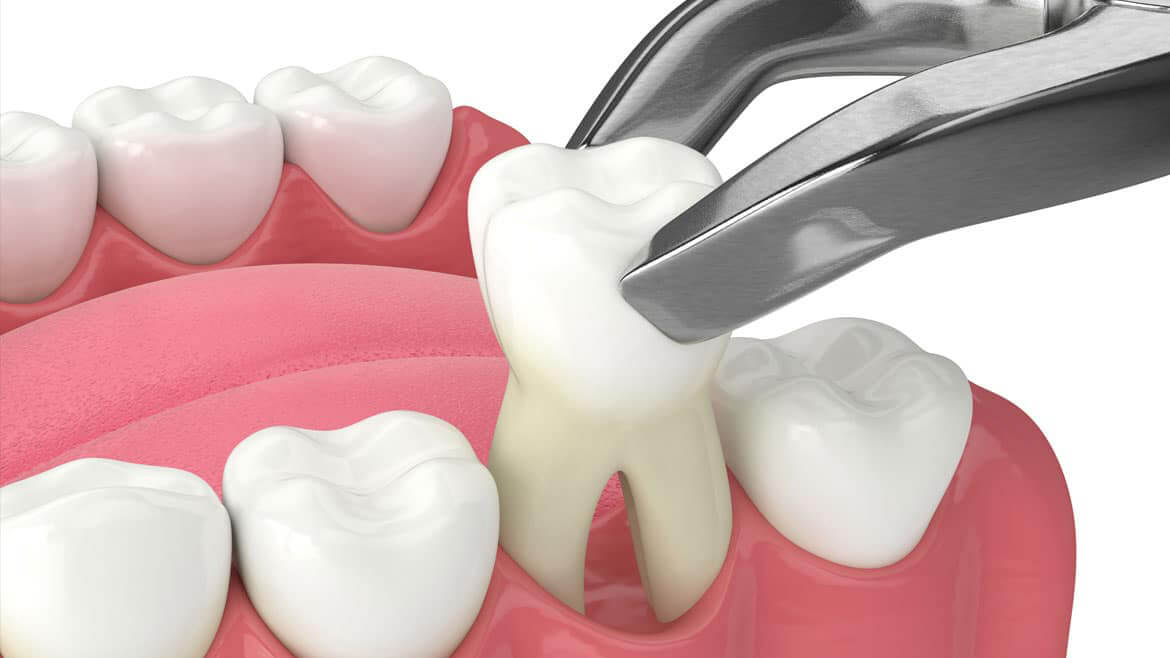Tooth Extractions
Tooth extractions are a common dental procedure in which a tooth is removed from its socket in the bone. While it may sound intimidating, tooth extractions are often necessary to maintain your overall oral health and prevent further complications. At our clinic, we offer safe and effective tooth extraction services for both routine and complex cases, ensuring minimal discomfort and a smooth recovery.
Why Are Tooth Extractions Needed?
There are several reasons why a tooth may need to be extracted. Some of the most common reasons include:
-
Severe Tooth Decay or Damage: When a tooth is extensively decayed or damaged and cannot be restored with a filling, crown, or root canal, extraction may be necessary to prevent infection or further damage.
-
Impacted Teeth: An impacted tooth is one that fails to emerge through the gums properly. This is common with wisdom teeth, which may become trapped beneath the gum line and cause pain, infection, or crowding.
-
Overcrowding: In some cases, especially for patients undergoing orthodontic treatment, extra teeth may need to be removed to create space for proper alignment of the remaining teeth.
-
Gum Disease: Advanced gum disease (periodontitis) can lead to tooth mobility and infection. If the tooth becomes loose due to gum disease, extraction may be necessary to prevent further infection or damage to surrounding teeth.
-
Infection or Abscess: If a tooth becomes infected and the infection cannot be treated with antibiotics or root canal therapy, extraction may be the best option to prevent the infection from spreading to other areas of the mouth or body.
What to Expect During a Tooth Extraction Procedure
The tooth extraction procedure is generally quick and straightforward. Here’s what you can expect:
-
Consultation and Evaluation: Before the extraction, we will conduct a thorough evaluation, which may include X-rays, to assess the tooth’s condition and plan for the procedure.
-
Anesthesia: We will administer a local anesthetic to numb the area around the tooth to be extracted. For patients who feel anxious or need more extensive procedures, sedation options (such as oral sedation or nitrous oxide) are available to ensure you remain comfortable throughout the process.
-
Extraction: Once the area is numb, the dentist will carefully loosen the tooth and remove it from its socket. In some cases, the tooth may be broken into smaller pieces to make extraction easier.
-
Aftercare: After the tooth is removed, we will provide detailed aftercare instructions to ensure proper healing. This may include tips for managing any discomfort, swelling, and bleeding, as well as guidelines for diet and oral hygiene during recovery.
Benefits of Tooth Extractions
-
Prevents Further Damage: By removing a problematic tooth, you can prevent further damage to surrounding teeth and tissue.
-
Relieves Pain and Discomfort: If a decayed or infected tooth is causing pain, extraction can provide immediate relief and prevent the spread of infection.
-
Improved Oral Health: Extracting problematic teeth can help improve the overall health and function of your mouth, especially if the tooth is affecting your ability to chew, speak, or maintain good oral hygiene.
-
Better Alignment: In cases where teeth are overcrowded, extraction can create the necessary space for better alignment, particularly when combined with orthodontic treatment.
What to Expect After a Tooth Extraction
After the procedure, it’s normal to experience some swelling, bruising, and discomfort around the extraction site. These symptoms are temporary and can be managed with over-the-counter pain medication, cold compresses, and by following the aftercare instructions provided by our team. Here are some general guidelines for recovery:
-
Control Bleeding: Bite gently on a piece of gauze to control bleeding, and change the gauze as needed.
-
Swelling and Discomfort: Use ice packs on the outside of your cheek to reduce swelling, and take pain medication as directed.
-
Diet: Stick to soft foods for the first few days after the extraction and avoid chewing on the side of the mouth where the tooth was removed.
-
Rest and Care: Avoid strenuous activities and follow the aftercare instructions to help speed up the healing process.
Why Choose Us for Your Tooth Extraction?
-
Experienced Team: Our team of experienced dentists ensures a safe and efficient tooth extraction process, with your comfort and well-being as our top priority.
-
Personalized Care: We take the time to evaluate your unique needs and provide personalized care that is tailored to your specific situation.
-
Sedation Options: We offer a variety of sedation options to ensure that you are comfortable and relaxed during your procedure, especially if you feel anxious about the extraction.
-
Comprehensive Aftercare: We provide thorough aftercare instructions and support to help you heal quickly and comfortably.
Frequently Asked Questions
Tooth extraction is typically not painful, as the procedure is performed under local anesthesia to numb the area around the tooth. Most patients experience little to no discomfort during the extraction. Afterward, you may feel some soreness, swelling, and mild discomfort, but these symptoms can usually be managed with over-the-counter pain relief and ice packs.
Recovery time varies depending on the complexity of the extraction. For a simple extraction, most patients recover in about 1-2 weeks. If you had a more complex extraction, such as the removal of impacted wisdom teeth, recovery may take 3-4 weeks. It’s important to follow all aftercare instructions to promote healing and minimize complications.
We Can Help You
Have questions or ready to schedule your appointment? Our team is here to help! Reach out to us today – we’re excited to assist you in achieving your best smile.


